Breaking
- MENU
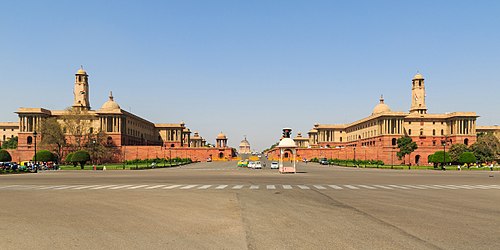
BILATERAL ISSUES
EGYPT
India condemns terrorist attacks in Egypt, New Delhi, 22 February 2019
India strongly condemns the recent terrorist attacks in Egypt, including the attack in northern Sinai on 16 February 2019. We express our sincere condolences to the families of the victims of the attack.
India stands in solidarity with the Government and people of Egypt in its fight against terrorism. India has always opposed and rejected terrorism in all its forms and manifestations and has urged concerted action by the international community against terrorism, including cross-border terrorism. Source: Ministry of External Affairs (MEA)
IRAN
India strongly condemns terrorist attack in Sistan-Baluchistan, Iran, New Delhi, 14 February 2019.
India strongly condemns the dastardly terrorist attack in the Khash-Zahedan sector of Sistan-Baluchistan province on the night of February 13.
Terrorism, in all its forms and manifestations, is condemnable and perpetrators of such crimes should be brought to justice expeditiously and without distinction.
We extend our condolences to the families of the victims, the people and Government of the Islamic Republic of Iran. We wish speedy recovery to those injured. Source: Embassy of India, Tehran.
IRAQ
Air India resuming flights to Iraq, Baghdad, 14 February 2019.
The Embassy of India in Baghdad has the pleasure to inform that India’s National Carrier, Air India is resuming its flight operations to Najaf, Iraq. The inaugural flight will be landing at the Najaf International Airport from New Delhi on Thursday, February 14, 2019. The flight will be welcomed by authorities of the Government of Najaf, Officials of the Embassy and prominent members of the Indian community in Iraq. Source: Embassy of India, Baghdad.
JORDAN
Visit of the King of Jordan to India (February 27 – March 01, 2018), New Delhi, 26 February 2019.
The King of the Hashemite Kingdom of Jordan, His Majesty King Abdullah II bin Al-Hussein will be visiting India from 27 February-01 March 2018. The King will be accompanied by a business delegation.
During this visit, the two sides will discuss the entire gamut of bilateral relations as well as regional and international issues of mutual interest. Apart from official talks by PM, Rashtrapatiji will host a banquet in the honour of His Majesty the King on 1st March, 2018. The Vice-President and External Affairs Minister will call on the visiting dignitary.
On 28th February, the King will visit IIT Delhi to explore collaboration with Jordan technical institutes. During the day, the King will also participate in a CEO Round-table followed by India-Jordan Business Forum jointly organized by FICCI, CII and ASSOCHAM.
On 1st March, His Majesty will deliver a special address on 'Promoting Understanding and Moderation', organised by India Islamic Centre at Vigyan Bhawan. During the visit, the two sides are expected to sign MoUs/Agreements in diverse areas of bilateral cooperation. Source: Embassy of India, Amman.
Visit by Prof. Mahmoud F. Al-Shetawi Al-Shara’ah, Dean, Faculty of Foreign Languages (FFL), University of Jordan, to India from 19-28 February 2018 under ICCR’s Academic Visitors Programme, Amman, 13 February 2019.
With an aim to strengthen academic and scholarly cooperation between India and Jordan and develop better mutual understanding and cooperation, Prof. Mahmoud F. Al-Shetawi Al-Shara’ah, Dean, Faculty of Foreign Languages (FFL) has been has been invited by the Indian Council for Cultural Relations (ICCR) under its Academic Visitors Programme for an exchange visit to India from 19-28 February 2018.
Besides meeting various Indian dignitaries during his visit, Dr. Al-Shara’ah would be delivering lectures at the prestigious Indian centres of academic excellence such as the Jawahar Lal Nehru University, the Delhi University, Jamia Milia University, University of Mumbai and the Bangalore University. During the visit, Prof. Al-Shara’ah is scheduled to deliver following lectures:-
“Appropriating Arabic matters in Shakespeare” at JNU
“Appropriating Shakespeare in Arabic literature, especially drama” at Delhi University
“Higher education and cultural studies in Jordan” at Jamia Milia Islamia
India’s relationship with Jordan has always been characterized by warmth and goodwill based on mutual respect. Exchange visits by cultural experts, academicians and scholars contribute to better understanding between the two countries.
Under ICCR’s AVP programme, reputed academicians are invited to visit India for a period of 7 - 10 days. The selected academicians are provided single international airfare with full local hospitality and programme in India is also arranged by ICCR. Source: Embassy of India, Amman.
MOROCCO
List of MoUs/Agreements signed during visit of External Affairs Minister to Morocco, 18 February 2019.
|
Sl. No. |
MoU |
Remarks |
|
1. |
Setting up of Joint Working Group on Counter Terrorism |
To develop a comprehensive approach to combat terrorism including cross- border terrorism, misuse of internet including social media by terror entities; terrorist financing, recruitment of members of terrorist groups. |
|
2. |
Cooperation in Housing and Human Settlement |
To further the cooperation in the field of Low Cost and Affordable Housing, Urban Planning and Smart Cities. |
|
3. |
Cooperation in Youth Matters |
To strengthen and encourage people to people connect, emphasizing on youths who comprises more than 50% of the population in both the countries through participation in events and activities in the two countries, exchange of information and knowledge sharing, and youth exchanges. |
|
4. |
Reciprocal facilitation of procedures for issue of Business Visa |
To alleviate the difficulties faced by businessmen in issue of Business Visa to further strengthen the excellent economic relations between the two countries. |
Source: Ministry of External Affairs (MEA).
OMAN
India-Oman Roadshow to promote Terry Towel sector held at Indian Embassy, Muscat, 14 February 2019.
Embassy of India, Muscat, as part of its endeavour to promote business relations between India and Oman, organized a Roadshow to promote Vibrant Terry Towel Global Expo &Summit 2019 (VTTGES)on 13 February 2019 at the Embassy of India. The Roadshow also facilitated business interactions between visiting Indian Terry Towel delegation and stakeholders in Oman.
Eng. Redha Juma Al Saleh, Member-Board of Directors of the Oman Chamber of Commerce & Industry was the Chief Guest on this occasion. Eng. Redha Al Saleh stressed on the immense potential for further increase in bilateral trade between India and Oman. Sh. Rakesh Adlakha, Deputy Chief of Mission in his welcome remarks referred to the historical trade links between the two countries and invited Omani businessmen to attend VTTGES 2019. Representatives of Textile Development Foundation (TDF), Solapur, gave a detailed presentation on VTTGES 2019, which will be held on 25 to 27 September 2019 in Solapur, Maharashtra. Solapur is known as “The Towel City of India” for its crafty terry towels and bath linen being manufactured at reasonable costs and possesses a rich blend of culture, interesting mythology and a thriving cottage and small-scale industry. The unique design of Solapur’s terry towels and bath linen are protected and recognized Geographical Indication under the Agreement on TRIPS.
‘VTTGES 2019 and Make in Solapur’ being organised with the support of Ministry of Textiles, Govt of Maharashtra will bring together all stakeholders from "yarn to fabric" viz cotton growers, manufacturers, traders, exporters and importers both domestic and international and consumers to a unique platform to harness export opportunities of towel manufacturers for their foray into national and international markets. More information about the Expo is available at www.vibrantterrytowel.com Source: Embassy of India, Muscat.
SAUDI ARABIA
Question No.448 Decline in Number of Workers Going to Saudi Arabia, Rajya Sabha, 07 February 2019.
448. SHRI K.C. RAMAMURTHY:
Will the Minister of EXTERNAL AFFAIRS be pleased to state:
(a) whether due to sharp increase in the number of deaths of Indians in Gulf countries, there is a sharp decline in number of workers going to Saudi Arabia by 47 percent in 2016 when compared to 2015 and 29 percent to UAE;
(b) whether the Ministry has tried to carry out any investigation or study to find out the causes of deaths; and
(c) if so, the details thereof and the manner in which the Ministry is planning to discuss the issue with those countries at diplomatic and political level so as to protect Indians?
ANSWER
THE MINISTER OF STATE IN THE MINISTRY OF EXTERNAL AFFAIRS [GEN. (DR) V. K. SINGH (RETD)]
(a) & (b) As per information received from our Missions in UAE and Saudi Arabia, the figures for population of Indian expatriates and deaths are given below:
|
|
Saudi Arabia |
UAE |
||
|
Year |
Population |
Deaths |
Population |
Deaths |
|
2015 |
29.6 lakhs |
2694 |
Not Available |
1540 |
|
2016 |
30.7 lakhs |
2766 |
26 lakhs |
1657 |
|
2017 |
32.5 lakhs |
2664 |
28 lakhs |
1637 |
|
2018 |
27.1 lakhs |
2551 |
31 lakhs |
1759 |
Source: Ministry of External Affairs (MEA).
State visit of Crown Prince of Saudi Arabia (February 19-20, 2019), New Delhi, 12 February 2019.
At the invitation of Prime Minister Shri Narendra Modi, HRH Mohammed bin Salman bin Abdulaziz Al Saud, Crown Prince, Vice President of the Council of Ministers and Minister of Defence of the Kingdom of Saudi Arabia is paying his first State visit to India on February 19-20, 2019. He will be accompanied by a high-level delegation, including Ministers, senior officials and leading Saudi businessmen.
During the forthcoming visit, HRH the Crown Prince of Kingdom of Saudi Arabia will call on Hon’ble President and Hon’ble Vice President and hold bilateral talks with Prime Minister Shri Narendra Modi on wide range of issues of mutual interest. The visit follows the highly successful visit of Prime Minister Shri Narendra Modi to Saudi Arabia in April 2016, during which the two countries agreed to further elevate existing strategic partnership.
India and Saudi Arabia have historically enjoyed close and friendly relations anchored in mutually beneficial partnership and extensive people to people contacts. In recent years, there has been significant progress in bilateral cooperation in key areas of mutual interest, including energy security, trade & investment, infrastructure, defence and security.
Our bilateral trade was US$ 27.48 billion during the last financial year 2017-18, making Saudi Arabia our 4th largest trading partner (Bilateral trade during April – November 2018 reached USD 23.24 billion). Saudi Arabia contributes significantly to our energy security needs by supplying about 20% of crude requirements to India. Recently, Saudi ARAMCO in partnership with ADNOC of UAE has entered into a Joint Venture for US$ 44 billion worth Ratnagiri Refinery and Petro-Chemical project Ltd.
About 2.7 million strong and vibrant Indian community forms the largest expatriate group in Saudi Arabia. Their positive and highly-appreciated contribution to the development of their host country has been an important anchor of our excellent bilateral engagement. The Kingdom of Saudi Arabia also facilitates Hajj pilgrimage to over 1,75,000 Indians every year. Source: Ministry of External Affairs (MEA).
Translation of Prime Minister’s Press Statement during the visit of Crown Prince of Saudi Arab (February 20, 2019), 21 February 2019.
Your Royal Highness Mohammed bin Salman bin Abdul-Aziz Al Saud,
Sadeki,
MarhabaBikum Fil Hind,
Friends,
I am very happy to welcome Royal Highness and his delegation on their first state visit to India. The economic, social and cultural relations of India and Saudi Arabia are centuries old. And they have always been cordial and friendly. The close and intense contact between our people is a living bridge for our countries. Your Majesty's, and Royal Highness, your personal interest and guidance have brought more intensity, depth and strength in our bilateral relations. The personal interest and the guidance of His Majesty and yourself Royal Highness, has brought more intensity, depth and strength in our bilateral relations. Today, in the 21st century, Saudi Arabia is among India's most valuable strategic partners. It is in our extended neighbourhood, is a close friend and is also an important source of energy security of India. During my visit to Saudi Arabia in 2016, we had given many new dimensions to our relations, especially in the areas of energy and security. As a result of the meeting with you in Argentina two months ago, the essence of our strategic partnership has taken new dimensions in the areas of security, trade and investment. I am happy that according to your suggested outline, we have agreed to establish the Biennial Summit and Strategic Partnership Council. These will benefit our relations by providing them with strength, speed and progress.
Friends,
Today, we have made extensive and meaningful discussions on all the topics of bilateral relations. We have decided to take our economic cooperation to newer heights. We have agreed to establish a framework to facilitate institutional investment from Saudi Arabia into our economy. I welcome the investment of Saudi Arabia in India's infrastructure.
Your Royal Highness,
Your 'Vision 2030' and the economic reforms being carried out under your leadership are complementary to India's flagship programs such as 'Make in India', 'Start-Up India'. It's time to turn our energy relations into a strategic partnership. Saudi Arabia's involvement in the world's largest refinery and strategic petroleum reserves takes our energy relations far beyond the typical buyer-seller relationship. We have agreed to strengthen our cooperation in the areas of renewable energy. We welcome Saudi Arabia in the International Solar Alliance. The peaceful use of atomic energy, especially for water desalination and health, will be another dimension of our cooperation. Especially in the context of our strategic environment, we have also successfully discussed the strengthening and expanding of mutual defence cooperation. Last year, India was the 'Guest of Honour' at the prestigious Janradriyah festival in Saudi Arabia. Today we have set the goal of strengthening our cultural ties. To increase trade and tourism facility of e-Visa is being extended for the citizens of Saudi Arabia. We are grateful to His Majesty and Royal Highness for increasing the Haj quota for Indians. Peaceful and useful presence of 2.7 million Indian nationals in Saudi Arabia is an important link between us. Royal Highness has praised their positive contribution in the progress of Saudi Arabia. You have always taken care of their well-being. For this their gratitude and blessings are always with you.
Friends,
The brutal terrorist attack in Pulwama last week is another cruel reminder of the threat to humanity that has caused havoc on the world. In order to deal effectively with this threat, we agree that there is a need to increase all possible pressure on countries supporting any type of terrorism. Destroying the infrastructure of terrorism and ending its support and punishing terrorists and their supporters is very important. At the same time, cooperation against extremism and along with that there is a strong need of an action plan for this, so that the forces of violence and terror cannot mislead our youth. I am glad that Saudi Arabia and India have shared views about this.
Friends,
Both our two countries have shared interests in ensuring peace and stability in West Asia and the Gulf. In our talks today, it has been agreed to co-ordinate our work and to speed up our participation in this area. We have also agreed that stronger bilateral cooperation in areas such as counter terrorism, maritime security and cyber security will be beneficial for both the countries.
Your Royal Highness,
Your journey has given a new dimension to the rapid development of our relationships. I once again thank the Royal Highness for accepting our invitation. I also wish him and all the members of the delegation to have a pleasant stay in India.
Thanks a lot.
Disclaimer: PM’s speech was delivered in Hindi. This is an approximate translation of Speech. Source: Ministry of External Affairs (MEA).
India-Saudi Arabia Joint Statement during the State Visit of His Royal Highness the Crown Prince of Saudi Arabia to India, New Delhi, 20 February 2019.
1. At the invitation of Hon’ble Prime Minister of the Republic of India Shri Narendra Modi, and under the guidance of the Custodian of the Two Holy Mosques, His Royal Highness Crown Prince Mohammed bin Salman bin Abdulaziz Al Saud, Deputy Prime Minister and Minister of Defence of the Kingdom of Saudi Arabia paid his first State visit to India from 19-20 February 2019, where he was received at the airport by the Hon’ble Prime Minister. The visit follows the official visit of Prime Minister Modi to the Kingdom of Saudi Arabia in April, 2016 at the invitation of the custodian of the Two Holy Mosques His Majesty King Salman bin Abdul Aziz Al Saud.
2. His Royal Highness the Crown Prince was accorded a ceremonial welcome on February 20, 2019 at the Forecourt of the Rashtrapati Bhawan, New Delhi. President Kovind also hosted a banquet dinner in honour of His Royal Highness.
3. Prime Minister Modi and His Royal Highness Crown Prince Mohammed bin Salman bin Abdulaziz held delegation level talks at Hyderabad House on February 20, 2019. External Affairs Minister Smt. Sushma Swaraj called on His Royal Highness.
4. India and Saudi Arabia enjoy cordial and friendly relations reflecting the centuries old economic and socio-cultural ties. Close geographical proximity, civilizational links, cultural affinity, natural synergies, vibrant people to people contacts. Common challenges and opportunities have added momentum to this robust engagement.
5. The bilateral discussions were held in the spirit of strong friendship that binds the two countries and their leaders. They expressed satisfaction at the excellent state of bilateral ties of friendship and cooperation, which are marked by trust, mutual understanding, goodwill and respect for each other’s interests. Both sides expressed satisfaction at the progress made in diverse fields including trade, energy, security and cultural spheres since the landmark visit of the Prime Minister to Riyadh in April 2016 – a visit which served to enhance our engagement and take our relations to the next level.
6. Prime Minister Modi welcomed the recent changes initiated by His Royal Highness Crown Prince to bring in moderation and openness in Saudi Arabia while His Royal Highness the Crown Prince conveyed his appreciation for Indian model of ethos of inclusiveness, pluralism and tolerance.
7. The two sides re-affirmed their deep commitment to strengthen the ‘strategic partnership’ envisaged in the ‘Riyadh Declaration’ of February 2010 and reiterated during the visit of the Custodian of the Two Holy Mosques His Majesty King Salman bin Abdulaziz Al Saud, in February 2014 and the visit of Prime Minister Shri Narendra Modi to Saudi Arabia in April 2016.
8. The two sides agreed to cement the existing ‘Strategic Partnership’ with ‘high level monitoring mechanism by the creation of Strategic Partnership Council led by the Honourable Prime Minister and His Royal Highness the Crown Prince, supported by ministerial representation covering the whole spectrum of strategic relationships.
9. Both sides welcomed the outcomes of the Workshop between NITI Aayog and Saudi Centre for International Strategic Partnership (SCISP) organised recently in Riyadh. The Workshop has identified more than 40 opportunities of joint collaboration and investments across various sectors.
10. The following MoUs were signed during the visit:-
(I) MoU on investing in the National Investment and Infrastructure Fund of India.
(II) MoU on cooperation in the field of Tourism.
(III) MoU on cooperation in the field of Housing.
(IV) Framework cooperation programme between Invest India and Saudi Arabia General Investment Authority (SAGIA).
(V) MoU for cooperation on Broadcasting for exchange of Audio-Visual Programmes.
(VI) Agreement for the Kingdom of Saudi Arabia to join the International Solar Alliance (ISA) launched by Honourable Prime Minister Modi.
11. Taking note of the positive trend in the bilateral trade over the recent years, the two sides acknowledged the huge untapped potential available in the merchandise trade, particularly in the non-oil trade. The two sides appreciated the positive deliberations held during the 12th session of the India-Saudi Joint Commission Meeting held in Riyadh in February 2018, for enhancing cooperation in economic, commercial, investment, cultural and technological fields.
12. The two sides stressed the importance of increasing trade volume between the two countries and eliminating export barriers.
13. The two sides agreed on further deepening trade and investment cooperation between the two countries by aligning the Kingdom’s Vision 2030 and its 13 Vision Realization Programs with India’s flagship initiatives of "Make in India”, "Start Up India”, "Smart Cities”, "Clean India”, and "Digital India”. The Saudi side expressed its readiness to attract Indian private/ public sector investments and expertise, in the upcoming mega projects in Saudi Arabia. The two sides acknowledged positive transformation of economies of India and Saudi Arabia.
14. Both sides welcomed the key initiatives taken by both Governments to improve the ease of doing business, simplify and rationalize existing rules and relax the foreign direct investment norms in key areas.
15. Both sides welcomed the positive change in investment climate after the signing of the Framework Cooperation Agreement between the Saudi Arabian General Investment Authority (SAGIA) and Invest India during Prime Minister Modi’s visit to Riyadh in 2016. The two sides urged the business communities to utilize the investment opportunities in both countries, especially in the fields of infrastructure, mining, energy including renewables, food security and technology transfer, and to further consolidate cooperation in the areas of skilled human resources in information technology, electronics and telecommunications.
16. Recognizing the availability of sophisticated infrastructure and logistical services in the Kingdom’s industrial cities and ports, His Royal Highness welcomed investments by Indian companies in the Kingdom for domestic and regional market access.
17. The Prime Minister welcomed the announcement of His Royal Highness to invest in the areas of energy, refining, petrochemicals, infrastructure, agriculture, minerals and mining, manufacturing, education and health potentially worth in excess of $100 billion.
18. The two sides expressed satisfaction at the first Joint Venture West Coast Refinery and Petrochemical Project estimated to cost US $ 44 billion and both sides agreed to expedite the implementation of the project, which will be the largest green field refinery in the world to be implemented in one phase. In addition, $10 billion through the Public Investment Fund and its technology partners, and other investments opportunities potentially worth $26 billion being explored.
19. The Prime Minister of India welcomed the investment from Saudi Arabia in the National Investment and Infrastructure Fund (NIIF) and other key sectors in India. In this context, both sides appreciated the signing of the MoU on investing in the National Investment and Infrastructure Fund (NIIF) as it will pave the way for expanding bilateral economic cooperation.
20. Prime Minister Modi welcomed the intent by Saudi side towards investments in India, especially in the areas of energy, refining, petrochemicals, infrastructure, agriculture, minerals and mining, manufacturing, education and health.
21. The two sides welcomed the signing of MoU for Cooperation in the field of Housing and encouraged Indian companies to participate in the housing projects in Saudi Arabia.
22. His Royal Highness Crown Prince welcomed Prime Minister’s initiative on Coalition on Disaster Resilient Infrastructure and hailed it as an important step towards disaster management.
23. Recognizing the importance of the energy security as a key pillar of the strategic partnership, the two sides expressed desire to grow bilateral trade in the energy sector, acknowledging Saudi Arabia as the world’s most reliable supplier of oil & gas and the key supplier to India. The two sides stressed on continuation of the India-Saudi Arabia Energy consultations. The two sides agreed to transform the buyer-seller relationship in the energy-sector to strategic partnership focusing on investment and joint ventures in petrochemical complexes.
24. His Royal Highness the Crown Prince reiterated the Kingdom’s commitment to meet India’s growing needs for crude oil and petroleum products and substitute for any shortages that may arise as a result of any disruptions from other sources.
25. The Prime Minister also welcomed the Kingdom’s participation in the India’s Strategic Petroleum Reserves (SPRs).
26. The Prime Minister of India welcomed the decision of the Saudi side to join the International Solar Alliance. Both sides noted the potential cooperation in the renewable energy sector not only in investment but also in Research and Development.
27. The two sides also agreed to cooperate in the areas of space, science and technology, including remote sensing, satellite communication and satellite-based navigation.
28. The two sides agreed to set up a Joint Working Group on Skill Development to identify areas of cooperation, where the two countries can benefit from each other’s core competencies in important fields such as manufacturing, information technology, communications, and programming.
29. The two sides welcomed the recent developments in India-Saudi co-operation in the defence sector, particularly in the fields of exchange of expertise and training, especially after the MoU on Defence Cooperation signed during the visit of His Majesty King Salman bin Abdulaziz Al Saud to India in February 2014. In this context, they welcomed the outcomes of the recently held 4th Joint Committee on Defence Cooperation in Riyadh on 2-3 January, 2019.
30. The two sides agreed to hold the inaugural joint naval exercises at the earliest and agreed to further expand bilateral exercises in other domains.
31. Noting the potential and mutual benefit, the two sides agreed to cooperate and collaborate in joint defence production of spare parts for Naval and Land systems as well as supply chain development, in line with ‘Make in India’ and ‘Vision 2030’.
32. The two sides agreed to work together with other Indian Ocean Rim Countries for enhancing maritime security, vital for the security and prosperity of both countries and safe passage for international trade.
33. With regards to regional connectivity projects, both sides agreed that they should be based on international law including respect for sovereignty and territorial integrity of states.
34. The two sides stressed the importance of regional stability and good neighbouring relations. His Royal Highness appreciated consistent efforts made by Prime Minister Modi since May 2014 including Prime Minister’s personal initiatives to have friendly relations with Pakistan. In this context, both sides agreed on the need for creation of conditions necessary for resumption of the comprehensive dialogue between India and Pakistan.
35. Affirming that the menace of extremism and terrorism threatens all nations and societies, the two sides rejected any attempt to link this universal phenomenon to any particular race, religion or culture. Both sides called on all states to reject the use of terrorism against other countries; dismantle terrorism infrastructures where they happen to exist and to cut off any kind of support and financing to the terrorists perpetrating terrorism from all territories against other states; and bring perpetrators of acts of terrorism to justice. The two sides also noted the need for concerted action by the international community against terrorism including through early adoption of the UN Comprehensive Convention on International Terrorism and underlined the importance of comprehensive sanctioning of terrorists and their organisations by the UN.
36. Both sides called up on all countries to renounce the use of terrorism as an instrument of state policy. They also called upon all states to deny access to weapons including missiles and drones to commit terrorist acts against other countries.
37. The Prime Minister and His Royal Highness condemned in the strongest terms, the recent terrorist attack on Indian security forces on 14 February, 2019 in Pulwama in Jammu & Kashmir.
38. The two sides discussed regional and international issues of mutual interest, including the security situation in West Asia and Middle East, in the light of their common interest in the regional and global peace, security and stability. Both sides emphasized Security Council Resolution (2254) with regard to the solution in Syria, and Security Council Resolution (2216), the GCC initiative, and the outcomes of the Yemeni National Dialogue with regard to the solution in Yemen.
39. The two sides expressed their hope for achieving a just, comprehensive and lasting peace in the Middle East based on the Arab Peace Initiative and the relevant UN resolutions, to guarantee the legitimate rights of the Palestinian people.
40. To enhance further cooperation in the Counter-terrorism efforts and benefit mutually from real-time intelligence sharing, the two sides agreed to constitute a ‘Comprehensive Security Dialogue’ at the level of National Security Advisors and set up a Joint Working Group on Counter-Terrorism.
41. The Prime Minister and His Royal Highness reiterated to continue the ongoing close cooperation on a range of security issues, particularly on maritime security, law enforcement, anti-money laundering, drug trafficking, human trafficking, illegal migration, and other transnational organized crimes.
42. Expressing serious concerns at the misuse of cyber space as a medium to promote subversive and extremist ideologies, the two sides welcomed the signing of MoU on Technical Cooperation in Cyber Space and Combating Cyber Crime. Both sides agreed to promote cooperation including prevention of the use of Cyberspace for terror, radicalism and incitement to disturb social harmony.
43. The Indian side thanked the Saudi leadership for hosting a large Indian community and for ensuring their continued welfare and well-being.
44. Prime Minister thanked the Saudi leadership for designating India as the ‘Guest of Honour’ in the 32nd Saudi National Festival of Heritage & Culture – Janadriyah 2018. The two sides emphasized on further enhancing people to people contacts and strengthening the cultural cooperation by organizing Cultural weeks - ‘India Week in Saudi Arabia’ and ‘Saudi Arabia Week in India’ at regular intervals.
45. Prime Minister expressed his thanks to the Custodian of the Two Holy Mosques and to Highness the Crown Prince for increasing the quota for Hajj pilgrims from India to 200,000 to reflect the latest census.
46. Prime Minister expressed his thanks to the Custodian of the Two Holy Mosques and to His Royal Highness for ordering the release of 850 Indian prisoners from Saudi jails.
47. Both sides expressed the desire to broaden people-to-people interactions and to increase two-way tourism by addressing challenges with regard to consular and immigration related issues.
48. The Indian Government has agreed to increase the seats of Saudi Arabian Airlines from 80,000 Seats/Months to 112,000 Seats/Month and studies underway to increase that number substantially.
49. Both sides look forward to the integration of migration platforms of both the countries viz., e-Migrate and e-Tawtheeq to create a robust migration environment.
50. Both sides agreed to explore opportunities for cooperation in the area of payment systems including RuPAY for the benefit of Indian community in general and more particularly the Hajj/Umrah pilgrims. The Prime Minister thanked His Royal Highness Crown Prince for sorting out the issue of "Iqamah” for the Indian Labour who were stranded in Saudi Arabia for no fault of their own and resolving this humanitarian issue.
51. Both sides committed themselves to promoting reformed multilateralism through enhanced cooperation at multilateral fora and in international organisations, including in UN, G-20, WTO, etc. In this context, they emphasised the need for reform in global governance architecture such as UN Security Council, WTO, international financial systems, etc.
52. Both sides emphasized the importance of an effective reformed multilateral system, centred on a UN reflective of contemporary realities, as a key factor in tackling global challenges. They stressed upon the urgent need to pursue UN reforms, including of the Security Council.
53. The two sides also reiterated their commitment to working together to address fugitive economic offenders including through international organisations and institutions.
54. His Royal Highness Crown Prince Mohammed bin Salman bin Abdulaziz, Deputy Prime Minister and Minister of Defence expressed his gratitude to the Government and people of India for the warm hospitality extended to him and the accompanying delegation. Source: Ministry of External Affairs (MEA).
President hosts Crown Prince of Saudi Arabia; says India wishes to be a partner in the kingdom’s ‘vision 2030’, New Delhi, 20 February 2019.
The President of India, Shri Ram Nath Kovind, received Mohammed bin Salman bin Abdulaziz Al Saud, the Crown Prince, Vice President and Defence Minister of the Kingdom of Saudi Arabia, at Rashtrapati Bhavan today (February 20, 2019). He also hosted a banquet in his honour.
Welcoming Crown Prince Mohammed bin Salman on his first state visit to India, the President said that India cherishes its cordial and friendly relations with the Kingdom of Saudi Arabia. India considers the Gulf region as its extended neighbourhood. The ever-expanding scope of India-Saudi Arabia bilateral relations demands sustained strategic engagement and frequent interactions between the two sides at all levels.
The President said that there is a visible enhancement of bilateral trade over the past few years. However, there exists further potential. Saudi Arabia continues to be our most important source of energy. We need to take the current buyer-seller relationship to a strategic level. The President said that India wishes to be a partner in the Kingdom of Saudi Arabia’s ‘Vision 2030’. These are complementarities between our economies.
Subsequently, in his banquet speech, President Kovind said that we look at Saudi Arabia as a factor of stability in the region and beyond. India wishes to be a strong and reliable partner for the Kingdom’s growth and progress. Indian companies have invested in and created jobs in Saudi Arabia, especially in the technology sector, which is India’s strength.
The President said that terrorism is the gravest threat to humanity today. India and Saudi Arabia, and indeed the global community, must come together to defeat and destroy these evil forces and combat radicalisation. Those responsible for such acts have no place in our society and need to be dealt with firmly and decisively. Source: Press Information Bureau (PIB).
List of MoUs/Agreements signed during State Visit of Crown Prince of Saudi Arabia to India, 20 February 2019.
|
Sl. No. |
Name of Agreements/MoUs |
Exchanged on Indian side by |
Exchanged on Saudi Arabia side by |
|
1. |
Memorandum of Understanding on investing in the National Investment and Infrastructure Fund between the Government of the Republic of India and the Government of the Kingdom of Saudi Arabia |
Smt. Sushma Swaraj, Minister of External Affairs |
H.E. Khalid Al Falih, Minister of Energy, Industry and Mineral Resources |
|
2. |
Memorandum of Understanding on Cooperation in the field of Tourism between the Ministry of Tourism of the Republic of India and the Saudi Commission for Tourism and National Heritage of the Kingdom of Saudi Arabia |
Shri T S Tirumurti, Secretary(ER) |
H.E. Mr. Adel Al-Jubeir, MOS for Foreign Affairs |
|
3. |
Memorandum of Understanding between the Government of the Republic of India and the Government of Saudi Arabia for Cooperation in the Field of Housing |
Shri Ahmad Javed, Ambassador of India to Saudi Arabia |
H.E. Dr. Majid bin Abdullah Al Qasabi, Minister of Commerce & Investment |
|
4. |
Framework Cooperation Program between Invest India of the Republic of India and Saudi Arabian General Investment Authority of the Kingdom of Saudi Arabia on Enhancing Bilateral Investment Relations |
Shri Ahmad Javed, Ambassador of India to Saudi Arabia |
H.E. Dr. Majid bin Abdullah Al-Qasabi, Minister of Commerce & Investment |
|
5. |
MoU for Cooperation on Broadcasting between Prasar Bharati, New Delhi, India and Saudi Broadcasting Corporation (SBC), Saudi Arabia for Exchange of Audio-Visual Programme. |
Shri Ahmad Javed, Ambassador of India to Saudi Arabia |
H.E. Dr. Turki Abdullah Al-Shabanah, Minister of Media |
Note: In addition to the above, the Saudi side has signed the Framework Agreement on the International Solar Alliance (ISA). Source: Ministry of External Affairs (MEA).
UAE
Cabinet approves MoU between India and the UAE on Development cooperation in Africa, New Delhi, 06 February 2019.
The Union Cabinet chaired by Prime Minister Narendra Modi has approved the Memorandum of Understanding (MoU) between India and the United Arab Emirates on Development Cooperation in Africa. The MoU entails setting up of a framework of cooperation between the two countries for implementing development partnership projects and programmes in Africa.
Benefits:
The proposal will help strengthen political and economic linkages between India and the countries of Africa and serve our broader strategic interests. Source: Press Information Bureau (PIB).
MULTILATERAL ISSUES
Question No.657 Illegal Migrants in Gulf Countries, Lok Sabha, 06 February 2019.
657. SHRI JAYADEV GALLA:
Will the Minister of EXTERNAL AFFAIRS be pleased to state:
(a) whether there are more than 2,000 people from Andhra Pradesh living illegally in Gulf countries out of the total 70,000 Indians:
(b) if so, the detail thereof:
(c) whether UAE has issued a directive to illegal migrants to leave its country and given three months’ time and has also given one-month amnesty period which has expired in November last year; and
(d) if so, the details thereof and the manner in which the Ministry is going to help these hapless people from Andhra Pradesh for their return and providing them employment etc.?
ANSWER
THE MINISTER OF STATE IN THE MINISTRY OF EXTERNAL AFFAIRS [GEN. (DR) V. K. SINGH (RETD)]
(a) & (b) The number of illegal Indian residents in the Gulf countries have not been shared by the host countries.
(c) & (d) An Amnesty scheme was announced by the UAE Government for overstaying foreigners to regularize their visa status w.e.f. 01.8.2018 to 31.10.2018. The scheme was later extended month by month up to 31stDecember 2018.
During this period, a total of 6823 Indian citizens sought consular help from the Indian Mission, of which 1949 were from Telangana, 1064 from Andhra Pradesh and remaining from other parts of India. Consulate issued 4034 Emergency Certificates free of cost for their return to India and 2802 short validity passports for those who wanted to rectify their status and continue to remain in UAE. Consulate also provided free air tickets to 230 Indians for their return to India during the amnesty scheme. Source: Ministry of External Affairs (MEA).
Question No.51 Death of Indians Working in Gulf Countries, Rajya Sabha, 07 February 2019.
*51. SHRI HUSAIN DALWAI:
Will the Minister of EXTERNAL AFFAIRS be pleased to state:
(a) the details of deaths of Indian workers in Saudi Arabia, UAE, Kuwait, Oman, Qatar, Bahrain during the last three years, State-wise and year-wise;
(b) whether the Ministry has analysed the causes of these deaths, if so, the details thereof and if not, the reasons therefor;
(c) whether the Ministry has received complaints from the relatives of deceased workers regarding the cause of deaths and if so, the details thereof; and
(d) whether action has been taken to prevent such deaths, including intervention with Gulf countries’ Governments and if so, the details thereof and if not, the reasons therefor?
ANSWER
THE MINISTER OF EXTERNAL AFFAIRS [SHRIMATI SUSHMA SWARAJ]
(a) to (d) A statement is laid on the Table of the House.
STATEMENT REFERRED TO IN REPLY TO PARTS (a) TO (d) OF THE RAJYA SABHA STARRED QUESTION NO. *51 REGARDING ‘DEATH OF INDIANS WORKING IN GULF COUNTRIES’ FOR ANSWER ON 07.02.2019
(a) A country wise compilation for each of the Gulf countries showing the number of deaths of Indian nationals in the last three years sorted on the basis of the various Indians states to which such Indian nationals belonged is provided in Annexure.
(b) A compilation showing the major causes of death of Indian nationals in Gulf countries as reported by our Missions and Posts is given in Annexure.
(c) Sometimes complaints/representations are received from the family members/relatives of the deceased Indian nationals at the Indian Mission/Post concerned. Based on such complaints and requests by family members regarding the causes of death, the Indian Missions and Posts take up the matter with the local authorities concerned for investigation. On receipt of the reports from local agencies, the Mission/Post share them with the complainant/relatives of the deceased.
(d) The Ministry of External Affairs and our Missions/Posts in the Gulf accord high priority to the welfare and well-being of Indian nationals especially of Indian workers who constitute a large proportion of expatriate Indians in the region. As can be seen from the Annexure, a large number of deaths of Indian nationals in the Gulf countries can be attributed to natural causes, medical illnesses etc. Some deaths are also reported due to suicides, accidents at work sites and road accidents.
In order to prevent workers’ deaths such as suicides, road accidents etc. in Gulf countries, awareness campaigns are conducted by the Missions/Posts through labour camps organised by Pravasi Bharatiya Seva Kendras (PBSK) in collaboration with the Indian Missions/Posts. Indian officials work proactively to alleviate and resolve the difficulties being faced by Indian workers such as excessive working hours, inadequacy of medical facilities, excessive exposure to heat and sun stroke etc. Anyone having any difficulty can approach Community Welfare Wing in getting his problems addressed promptly.
Consular Officers posted in Indian Missions/Posts abroad are tasked with addressing the difficulties of distressed Indians, including Indian workers, in various countries abroad. In Gulf countries where there are large numbers of Indian workers, our Missions and Posts have specialized Community Welfare Wings and Labour Wings. In addition, the Government has launched an online portal called ‘MADAD’ for addressing the grievances of Indian nationals abroad. The MADAD Portal is regularly monitored in our Missions/Posts at various levels, thus giving high priority to grievances of Indian workers. Source: Ministry of External Affairs (MEA).
Question No.461 Release of Indian Prisoners from Middle East, Rajya Sabha, 07 February 2019.
461. SHRI V. MURALEEDHARAN:
Will the Minister of EXTERNAL AFFAIRS be pleased to state:
(a) whether there are cases of Indians languishing in prisons especially of Middle East countries even after their period of conviction is over; and
(b) if so, the steps that are being taken by the Government for their release?
ANSWER
THE MINISTER OF STATE IN THE MINISTRY OF EXTERNAL AFFAIRS [GEN. (DR) V. K. SINGH (RETD)]
(a) As per information available, the total number of Indians who have completed their jail terms but are still lodged in prisons in Gulf countries is 20 (04 in Oman and 16 in UAE). However, due to stringent privacy laws prevailing in many countries, the local authorities do not share information on prisoners unless the person concerned consents to the disclosure of such information. Even countries, which share information, do not generally provide detailed information about the persons who have been imprisoned.
(b) The process of release and repatriation of Indian nationals who complete their sentences in foreign prisons is dynamic and the number keeps changing. Our Missions and Posts abroad provide all possible consular support and humanitarian and legal assistance on a case to case basis, for completing formalities by coordinating with local immigration authorities for early deportation of the Indians who have completed their jails terms. This includes issue of emergency certificates, if required, and also provision of airfare on a means tested basis in deserving cases from the Indian Community Welfare Fund (ICWF). Source: Ministry of External Affairs (MEA).
Question No.1756 Indians Lodged in Jails of Gulf Countries, Lok Sabha, 13 February 2019.
1756. SHRI M.K. RAGHAVAN:
Will the Minister of EXTERNAL AFFAIRS be pleased to state:
(a) whether the Government is aware that a large number of Indians are lodged in jail in the Gulf Countries;
(b) if so, the details thereof, country and State-wise;
(c) the details of action being taken by the Government to get them released and deported to India;
(d) whether it is a fact that the Indian Embassy concerned has charged any fee for extending facilities to such persons; and
(e) if so, the reasons therefor and the steps taken to give services and facilities to such persons, who are mostly poor, free of cost?
ANSWER
THE MINISTER OF STATE IN THE MINISTRY OF EXTERNAL AFFAIRS [GEN. (DR) V. K. SINGH (RETD)]
(a) & (b) As per information available with the Ministry, 4705 Indian nationals are in prisons in Gulf countries, as shown in Annexure.
(c) to (e) Our Missions and Posts abroad extend all possible help and assistance to the imprisoned Indian nationals including when they are detained by local police/immigration authorities or put in prisons for violation of local laws. Apart from extending them all possible consular services, Indian Missions and Posts abroad also assist in extending legal aid wherever needed. Missions and Posts also maintain a local panel of lawyers where Indian community is in sizeable numbers. Legal assistance is also provided to Indian nationals abroad including those in prison on a means tested basis through the Indian Community Welfare Fund. No fee is charged by our Missions and Posts abroad in such cases.
|
Sl. No. |
Name of countries |
Numbers of Indians in prisons |
|
1. |
Bahrain |
121 |
|
2. |
Kuwait |
483 |
|
3. |
Oman |
59 |
|
4. |
Qatar |
212 |
|
5. |
Saudi Arabia |
2224 |
|
6. |
United Arab Emirates |
1606 |
|
|
Total |
4705 |
Source: Ministry of External Affairs (MEA).
Question No.1662 Hindus in Muslim Countries, Lok Sabha, 13 February 2019.
†1662. SHRI GOPAL SHETTY:
Will the Minister of EXTERNAL AFFAIRS be pleased to state:
(a) whether the Hindus residing in certain Muslim countries are not allowed to perform their religious ceremonies such as funeral rites, puja, etc.;
(b) if so, the details thereof along with the names of such countries;
(c) whether the Government has raised the said issue with these countries; and
(d) if so, the outcome thereof?
ANSWER
THE MINISTER OF STATE IN THE MINISTRY OF EXTERNAL AFFAIRS [GEN. (DR) V. K. SINGH (RETD)]
(a) to (d) Performance of religious rites is governed by local laws and regulations of the country concerned. As per information available with the Ministry, Hindus residing in most countries, including in Muslim countries, are allowed to perform their religious ceremonies such as funeral rites, puja, etc. However, in some countries, pujas, prayers, etc. is not allowed in public but can be performed within private premises, in compliance with local laws. Some Islamic countries do not have facilities for cremation, while some like Egypt, Jordan and Turkey do not allow local cremations.
In Saudi Arabia, funeral ceremony in respect of Hindus, including non-Muslims, residing there is not permissible. However, disposal of mortal remains of non-Muslims is permitted only by burial at some designated places in Saudi Arabia.
Whenever the Government learns about the problems being faced by the minority communities, including Hindus, the matter is raised with the concerned authorities in foreign countries urging action to protect rights of the minorities. Source: Ministry of External Affairs (MEA).
Visit of External Affairs Minister to Bulgaria, Morocco and Spain (February 16-19, 2019), New Delhi, 14 February 2019.
External Affairs Minister, Smt. Sushma Swaraj will undertake a four day visit to Bulgaria, Morocco and Spain from 16-19 February 2019.
External Affairs Minister will be on an official visit to the Republic of Bulgaria on 16-17 February 2019. The visit is a follow-up visit to the State visit of the President of India to Bulgaria in September last year. This is the first ever visit of an Indian External Affairs Minister to Bulgaria. During the visit, EAM will meet with the Deputy Prime Minister & Foreign Minister of the Republic of Bulgaria. The two leaders will discuss bilateral, regional and global issues of mutual interest. EAM will pay floral tributes at the statue of Mahatma Gandhi at the South Park in Sofia. The statue was unveiled last year by Hon’ble President of India along with President of Bulgaria to mark the celebrations of 150th birth anniversary of Mahatma Gandhi. She will also interact with the Indian community and Friends of India in Sofia during the visit.
In the second leg of her tour, EAM will visit Kingdom of Morocco on 17-18 February 2019. The visit is in pursuit of India’s objective of enhanced engagement with the Kingdom and will provide an opportunity to hold in-depth discussions on bilateral, regional and global issues. During the visit, EAM will interact with her counterpart H.E. Nasser Bourita, Minister of Foreign Affairs & International Cooperation, Morocco. She will also call on His Majesty King Mohammed VI, King of Morocco, H.E. Mr. Saad Dine El Otmani, Head of Government and Habib El Maliki, President of Chamber of Representatives, Parliament. Three MoUs for cooperation in the areas of Counter Terrorism, Housing & Human Settlements and Youth Matters are expected for signing during the visit. EAM will also interact with the Indian community in Rabat.
In the last leg of her visit, EAM will travel to Spain on 18-19 February, 2019 at the invitation of her counterpart, H.E. Mr. Josep Borrell Fontelles, Spanish Minister of Foreign Affairs, the European Union and Cooperation. During her visit, External Affairs Minister will hold a bilateral meeting with her counterpart to discuss bilateral, regional and global issues of mutual concern. The Spanish Government will also confer upon EAM the prestigious Grand Cross of the Order of Civil Merit by the Spanish Government for India´s swift response through Operation Maitri in rescuing 71 Spanish nationals from Nepal in April 2015 in the wake of the disastrous earthquake. EAM will also interact with the Indian Community in Spain.
External Affairs Minister’s visit will strengthen India’s relations with these three countries, expand avenues of cooperation and provide an opportunity discuss regional and global issues of importance. Source: Ministry of External Affairs (MEA).
The OIC Condemns India’s Violation of the Line of Control with Pakistan, Jeddah, 26 February 2019.
Reacting to India's violation of the line of control between Pakistan and India, the General Secretariat of the Organization of Islamic Cooperation condemned this action against an OIC founding member state.
The OIC condemned the Indian incursion and aerial violation and dropping of four bombs today, 26 February 2019. It urged India and Pakistan to exercise restraint and avoid any steps that would endanger peace and security in the region. It called upon both parties to act responsibly and encouraged them to seek peaceful solution to current crisis without resort to use of force. It also called on them to embrace dialogue and work towards de-escalation of current situation as a matter of priority. Source: Organisation of Islamic Cooperation (OIC).
OIC Contact Group Meeting on Jammu and Kashmir Calls for Immediate De-escalation in the Region, Jeddah, 26 February 2019.
The OIC Contact Group on Jammu and Kashmir held an emergency meeting at the OIC General Secretariat in Jeddah on 26thFebruary 2019 ahead of the 46thSession of the Council of Foreign Ministers to be held in Abu Dhabi, United Arab Emirates on 1-2 March 2019. The meeting expressed deep concern over the heightened tension in the region and called for immediate de-escalation.
The meeting was chaired, on behalf of the Secretary General by Assistant Secretary General Ambassador Hameed A. Opeloyeru, and attended by Foreign Secretary of Pakistan Tehmina Janjua, and the Permanent Representatives of Azerbaijan, Turkey, Saudi Arabia and Niger as well as the President of Azad Jammu and Kashmir Masood Khan.
In his opening remarks, speaking on behalf of the OIC Secretary General, the Assistant Secretary General strongly condemned the recent wave of repression, brutal killing of innocent Kashmiri civilians by the Indian occupied forces, frequent incidents of rape especially of minor girls. He reiterated OIC’s principled position on supporting the people of Jammu and Kashmir in achieving their legitimate rights, including the right of self-determination. He also emphasized that conflict shall be resolved in accordance with the aspiration of the Kashmiri people and the OIC and United Nations resolutions.
Pakistan Foreign Secretary apprised the participants on the recent Indian threats to regional peace and security and continued Indian repression and recent escalation in atrocities against the innocent Kashmiris. The Foreign Secretary reaffirmed Pakistan’s political, moral and diplomatic support to the people of Indian Occupied Kashmir in their just struggle to achieve the inalienable right to self-determination. She recalled Pakistani Prime Minister’s concrete offer for dialogue to India.
The Contact Group appreciated Prime Minister of Pakistan’s offer for peace and dialogue to India to resolve all issues. The members of the Contact Group reiterated their continued support to the people of Jammu and Kashmir. They called on India to immediately stop repressive security operations against the people of Jammu and Kashmir, respect the fundamental and basic human rights and address the dispute in accordance with the relevant OIC and United Nations Security Council resolutions on the subject as well as the wishes and aspirations of the Kashmiri people, the principle of self-determination and human rights.
The Contact Group called on the OIC and the UN Secretaries General to use their good offices to put an end to the dangerous escalation by India, which threatens regional peace and security. It was underscored that priority should be given to peace and dialogue. Source: Organisation of Islamic Cooperation (OIC).
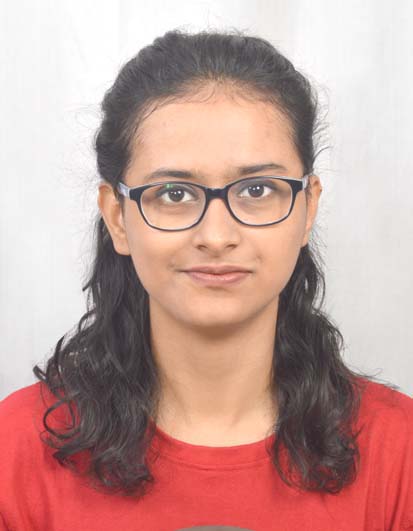
Ankita Sanyal is a doctoral candidate at Centre for West Asian Studies, Jawaharlal Nehru University, New Delhi. She worked as a summer intern at National Human Rights Commission, New Delhi in 2014 and participated in Global Initiative for Academic Networks, lecture on “Jerusalem and Abrahamic Faiths throughout the Ages” (November 2016); ICSSR-sponsored workshop on “Research Methodology Workshop in Social Sciences” (February 2019); and workshop on “Second Intensive Course on Women’s Studies in Islam and Iran” at the University of Religions and Denominations, Qom, Iran (August 2019). She currently has many publications and has presented papers in national and international conferences. She received certificate on completion of Level Two Persian Language course. Her area of interest includes minority studies, gender studies, cultural studies, education, peace and conflict studies.
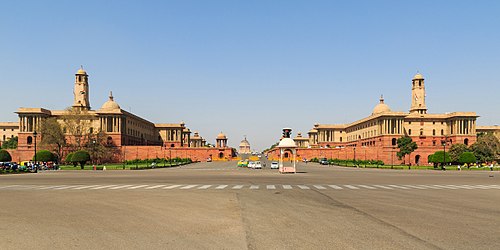
BILATERAL ISSUES BAHRAIN The CEO of LMRA highlights details on the new labour market reforms, .....
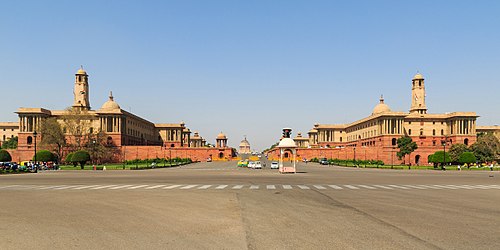
BILATERAL ISSUES EGYPT Raksha Mantri Shri Rajnath Singh to visit Egypt from September 19-20, 2.....
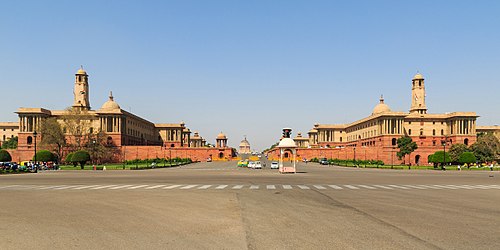
BILATERAL ISSUES IRAN Shri Sarbananda Sonowal visits Chabahar Port in Iran to Review work prog.....
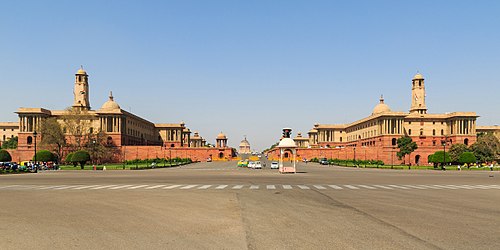
BILATERAL ISSUES BAHRAIN Deputy Chief of Naval Staff, India visits Kingdom of Bahrain, Manama,.....
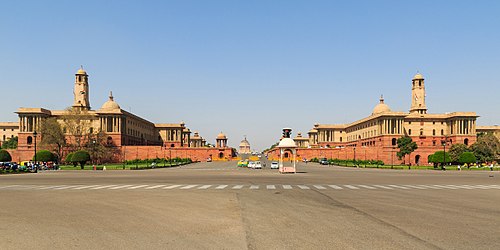
BILATERAL ISSUES BAHRAIN Buyer Seller Meet on Indian coffee between Indian exporters and Bahra.....
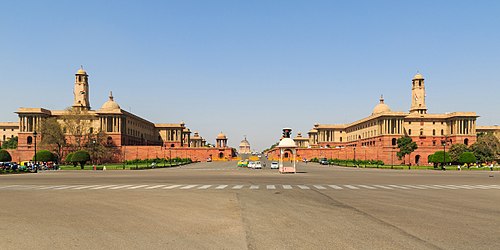
BILATERAL ISSUES BAHRAIN B2B meeting and Networking event between Bahraini & Indian IT com.....
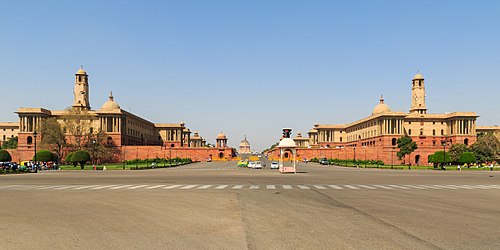
BILATERAL ISSUES OMAN Community Service Fortnight / Sewa Utsav’: ‘Celebration Thro.....
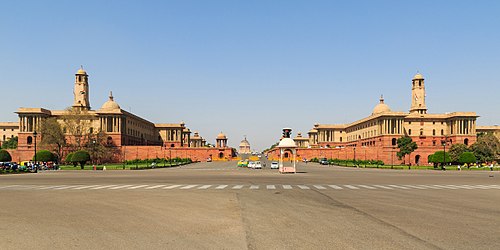
BILATERAL ISSUES BAHRAIN Virtual Buyer Seller Meet on agriculture and food products between In.....
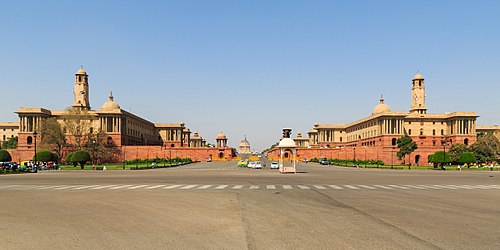
BILATERAL ISSUES BAHRAIN PM speaks on telephone with His Royal Highness Prince Salman bin Hama.....
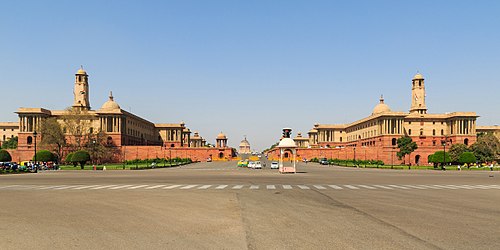
BILATERAL ISSUES ISRAEL Experts from India and Israel suggested expanding scope of India-Israe.....
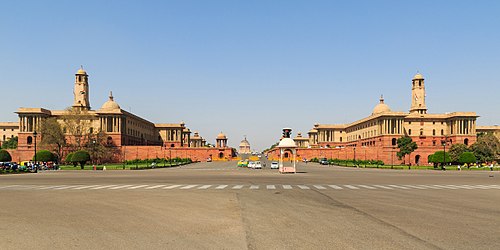
BILATERAL ISSUES BAHRAIN Press Release on virtual meeting between Minister for Education and S.....
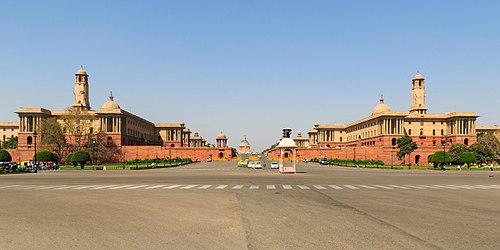
BILATERAL ISSUES BAHRAIN Ambassador’s visit to India Pavilion of Jewellery Arabia, Bahra.....
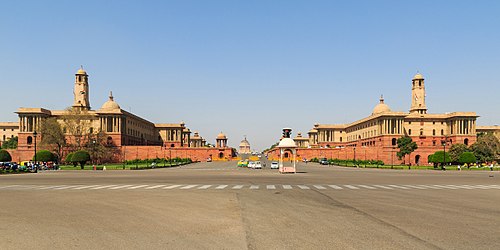
BILATERAL ISSUES BAHRAIN First consignment of GI tagged sweet dish Mihidana from West Bengal e.....
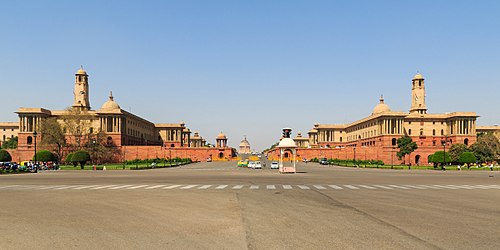
BILATERAL ISSUES ALGERIA Visit of Shri V. Muraleedharan, Minister of State for External Affair.....
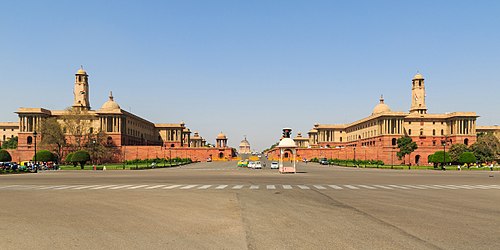
BILATERAL ISSUES ALGERIA INS TABAR undertook a bilateral Passage Exercise (PASSEX) with Algeri.....
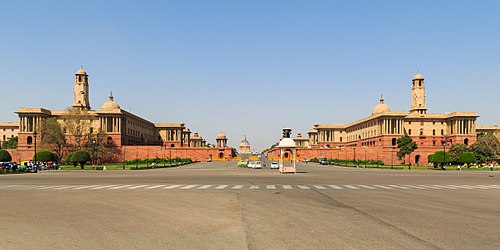
BILATERAL ISSUES BAHRAIN India expands mango export footprint to newer countries; GI certified.....
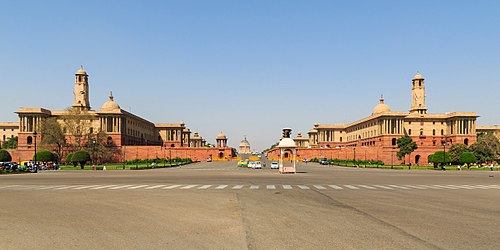
BILATERAL ISSUES ALGERIA APEDA in collaboration with Indian embassy organize virtual buyer sel.....
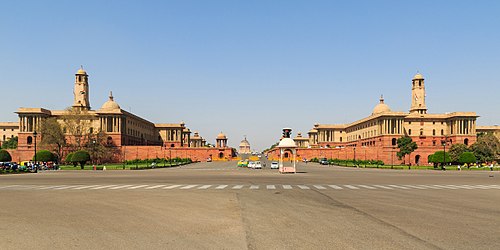
BILATERAL ISSUES EGYPT Procurement of 300,000 doses of Remdesivir from M/s EVA Pharma, Cairo, .....
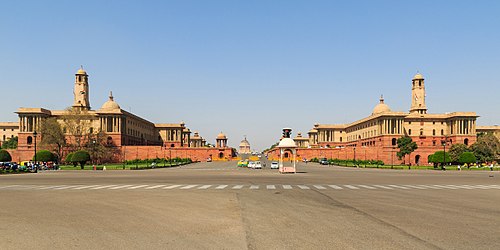
BILATERAL ISSUES BAHRAIN Third India-Bahrain High Joint Commission Meeting, New Delhi, 07 Apri.....
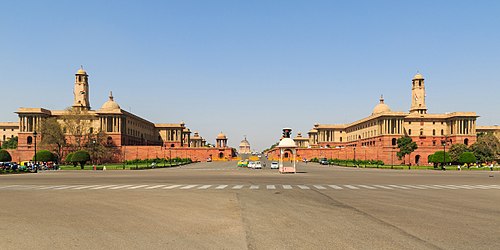
BILATERAL ISSUES BAHRAIN Indian Naval Ship Talwar’s Port Visit to Bahrain, Manama, 18 Ma.....
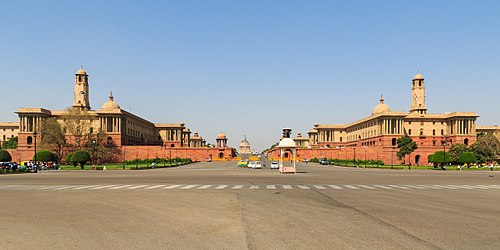
BILATERAL ISSUES IRAN Unstarred Question No.1475, Chabahar-Zaheden Railways Line, Lok Sabha, 1.....
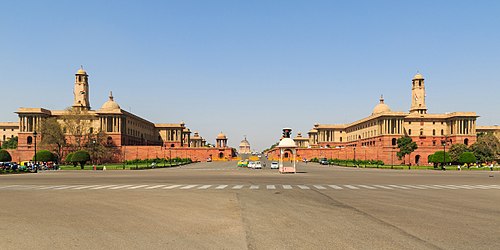
BILATERAL ISSUES IRAN Government of India strengthens cargo handling capacity of Chabahar Port.....
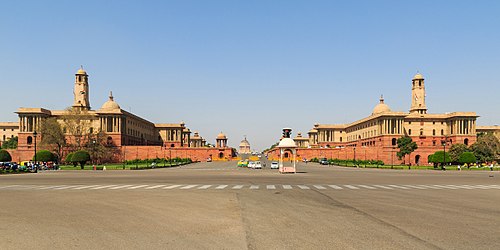
BILATERAL ISSUES BAHRAIN Warm greetings from Indian leadership on the occasion of Bahrain&rsqu.....
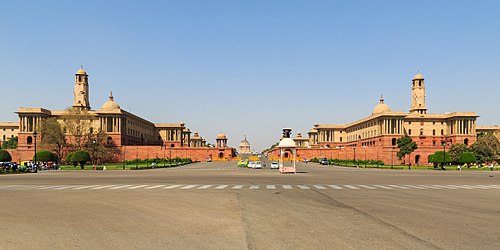
BILATERAL ISSUES BAHRAIN Prime Minister condoles the passing away of His Royal Highness Prince.....
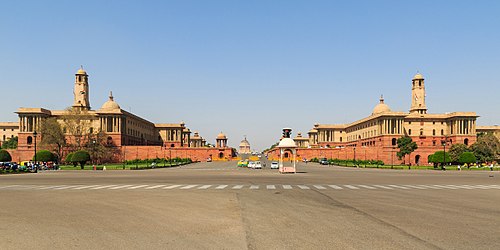
BILATERAL ISSUES BAHRAIN A B2B Webinar on Enhancing Opportunities in Pharmaceuticals and Alter.....
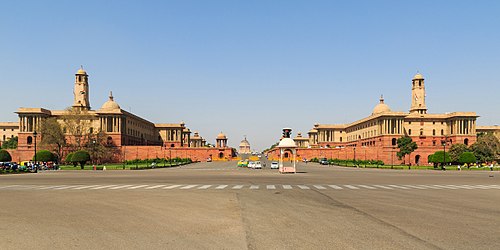
BILATERAL ISSUES IRAN Raksha Mantri Shri Rajnath Singh holds meeting with Iran's Minister .....
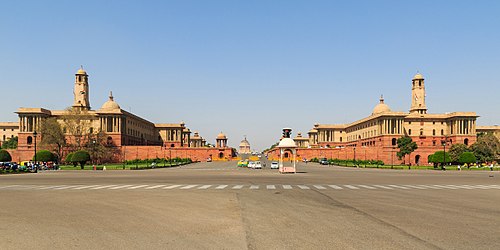
BILATERAL ISSUES ISRAEL Statement by the Official Spokesperson on the full normalisation of re.....
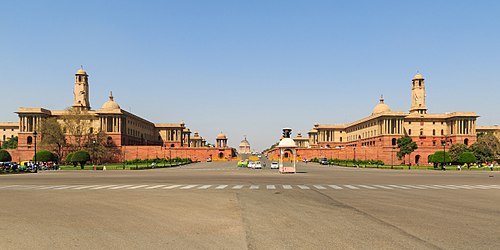
BILATERAL ISSUES ISRAEL Raksha Mantri Shri Rajnath Singh and Israeli Defence Minister telephon.....
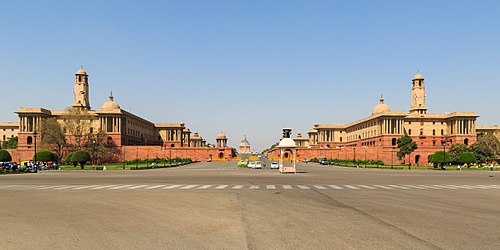
BILATERAL ISSUES IRAN Indian Navy Commences evacuation of citizens from Islamic Republic of Ir.....
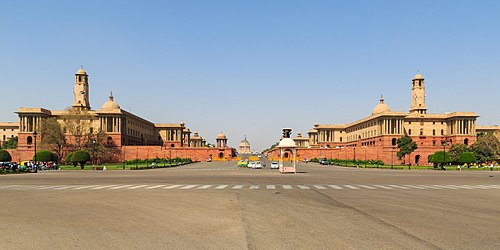
BILATERAL ISSUES EGYPT Phone call between Prime Minister Shri Narendra Modi and His Excellency.....
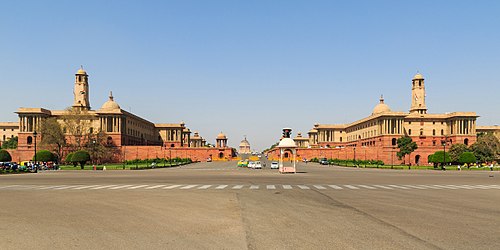
BILATERAL ISSUES BAHRAIN Telephone Conversation between PM and King of the Kingdom of Bahrain,.....
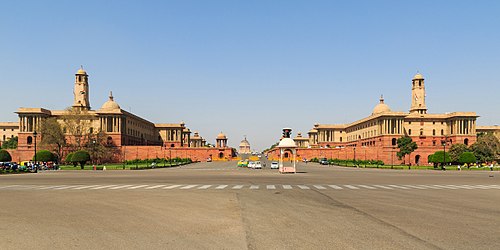
BILATERAL ISSUES IRAN IAF C-17 ‘Globemaster’ takes off for Iran, New Delhi, 9 Marc.....
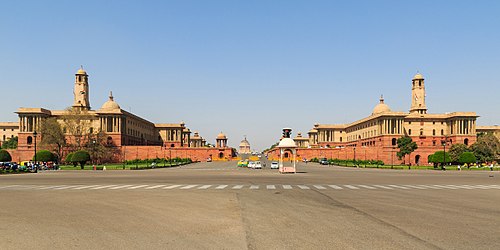
BILATERAL ISSUES IRAQ Travel Advisory for Indian Nationals travelling to Iraq, New Delhi, 19 F.....
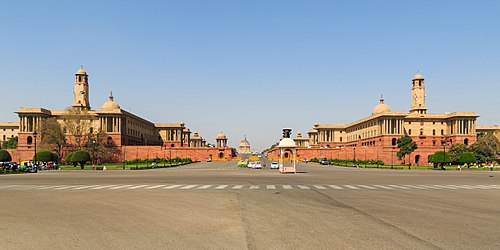
BILATERAL ISSUES EGYPT Photo exhibition on “Making of Indian Constitution and Life of Dr.....
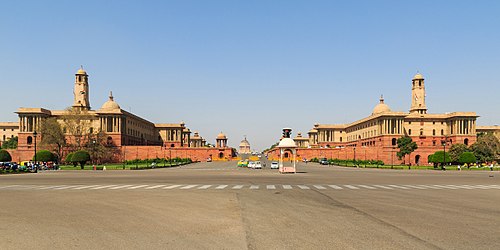
BILATERAL ISSUES EGYPT Prize Distribution Function of “Glimpses of India” Painting.....
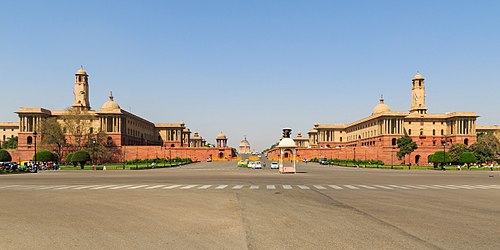
BILATERAL ISSUES EGYPT Consular Camp in Port Said on 22 November 2019, Cairo, 19 November 2019.....
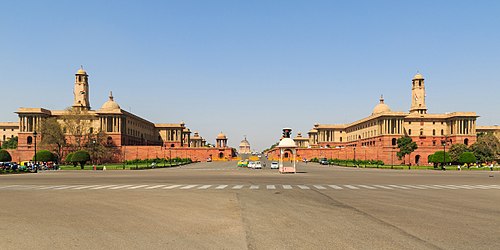
BILATERAL ISSUES JORDAN Meeting between Prime Minister and King of Jordan in Riyadh, Riyadh, 2.....
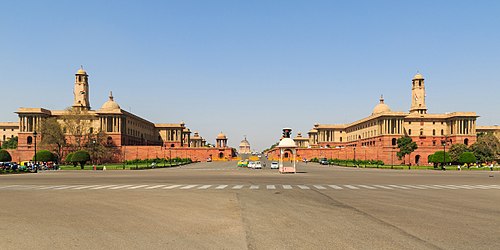
BILATERAL ISSUES a. IRAN Foreign Office Consultations between India and Iran, Tehran, 16 Septe.....
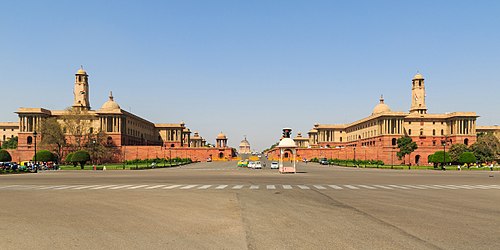
BILATERAL ISSUES a. BAHRAIN State Visits of Prime Minister to Bahrain (August 24-25, 2019), Ne.....
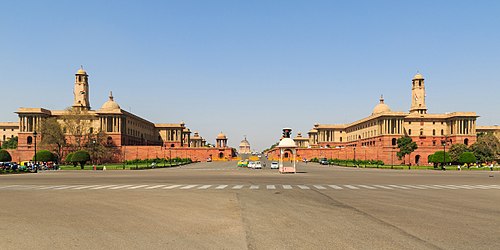
BILATERAL ISSUES BAHRAIN Cabinet approves Memorandum of Understanding between India and B.....
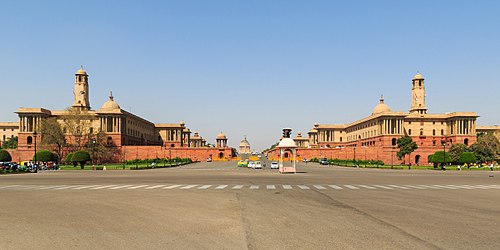
BILATERAL ISSUES IRAN UNSTARRED QUESTION No. 662 MPACT OF AMERICAN BAN ON CHABAHAR PORT, Rajya.....
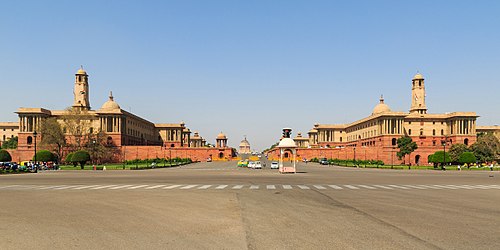
BILATERAL ISSUES IRAN 11th India Iran Joint Consular Committee Meeting (JCCM), New Delhi, 16 M.....
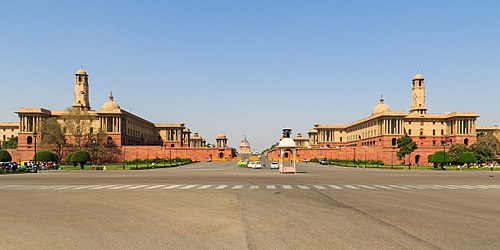
IRAN India extends relief assistance to Iran after recent floods, Tehran, 17 April 2019 In lin.....
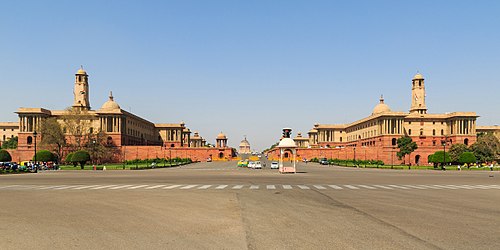
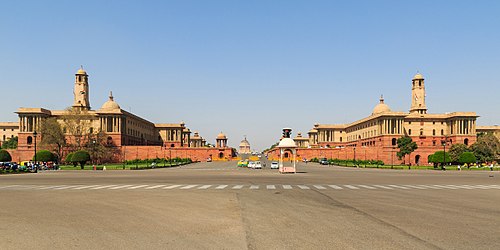
BILATERAL ISSUES ALGERIA Visit of Foreign Minister of Algeria to India (January 30-February 01.....
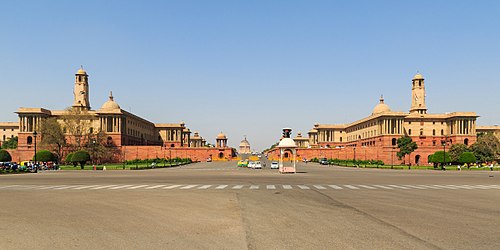
ALGERIA Cabinet approves Agreement between India and Algeria on Cooperation in the field of Space.....
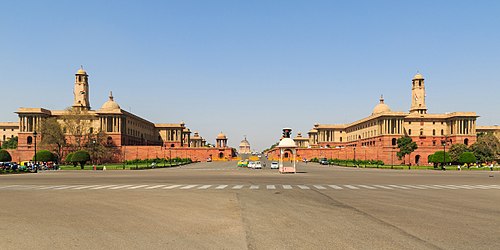
BILATERAL ISSUES IRAQ Jaipur Foot Camp in Karbala, Karbala, 21 November 2018 A 40-day Artif.....
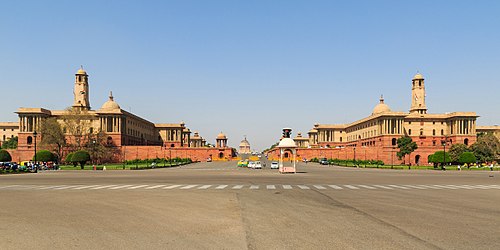
BILATERAL ISSUES KUWAIT Visit of External Affairs Minister to State of Qatar and State of Kuwa.....
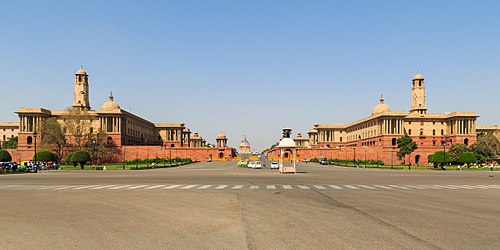
BILATERAL ISSUES EGYPT Cabinet approves MoU between India and Egypt on cooperation in the fiel.....
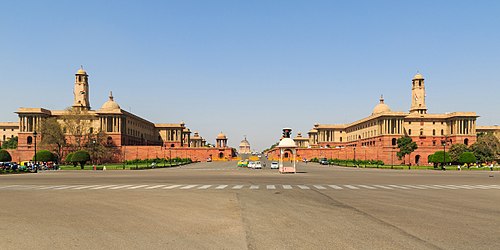
BILATERAL ISSUES BAHRAIN Question No. 3566, Unpaid Workers in Bahrain, Lok Sabha, New Delhi, 0.....
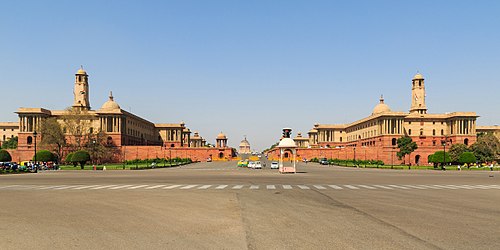
BILATERAL ISSUES BAHRAIN Visit of External Affairs Minister to Manama, Bahrain (July 14-15, 20.....
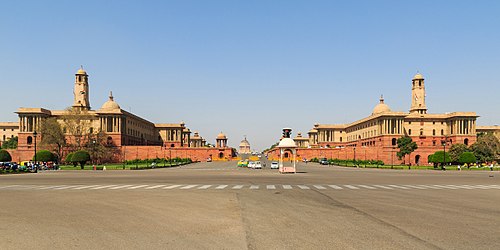
BILATERAL ISSUES BAHRAIN Cabinet approves MoU between India and Bahrain on cooperation in the .....
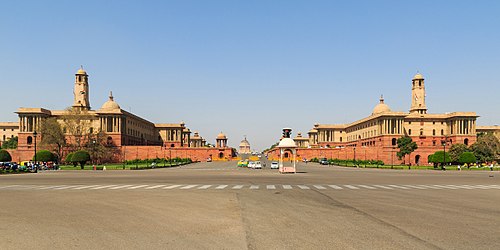
BILATERAL ISSUES IRAN External Affairs Minister’s meeting with Iranian Foreign Minister,.....
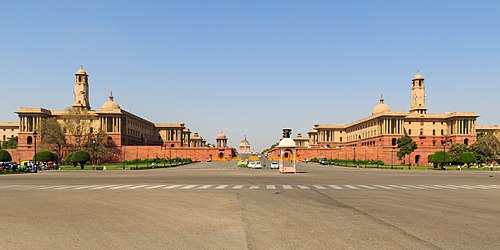
BILATERAL ISSUES IRAN Cabinet approves MoU between India and Iran on the establishment of an e.....
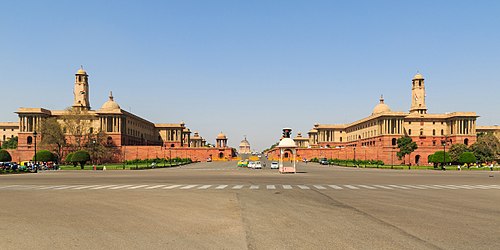
(Monthly Digest of Official Indian Statements on Middle East) BILATERAL ISSUES EGYPT Mr. Sa.....
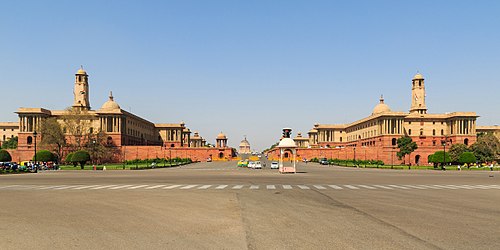
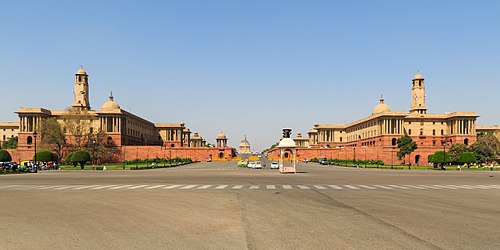
(Monthly Digest of Official Indian Statements on Middle East) BILATERAL ISSUES IRAN Launch .....
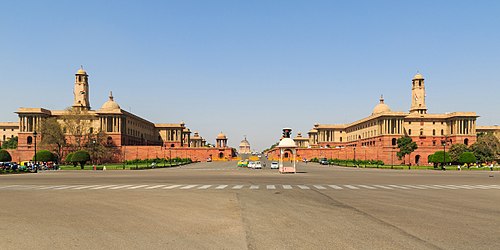
(Monthly Digest of Official Indian Statements on Middle East) BILATERAL ISSUES &.....
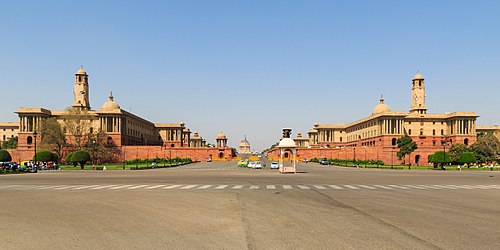
BILATERAL ISSUES a. EGYPT 1. H.E. Col. Rajyavardhan Singh Rathore, Minister of State for Youth.....
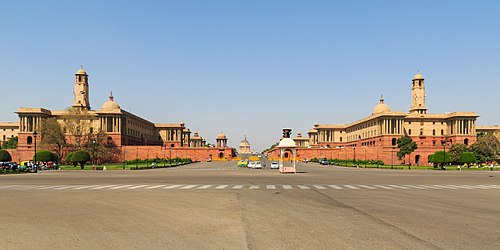
BILATERAL ISSUES a. IRAQ 1. India’s position on the Referendum held in the Kurdistan Reg.....
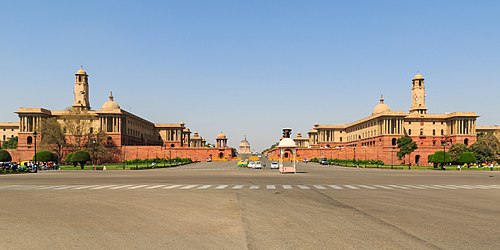
BILATERAL ISSUES IRAN 1. 6th Meeting of Joint Committee on Ports and Maritime Cooperation.....
